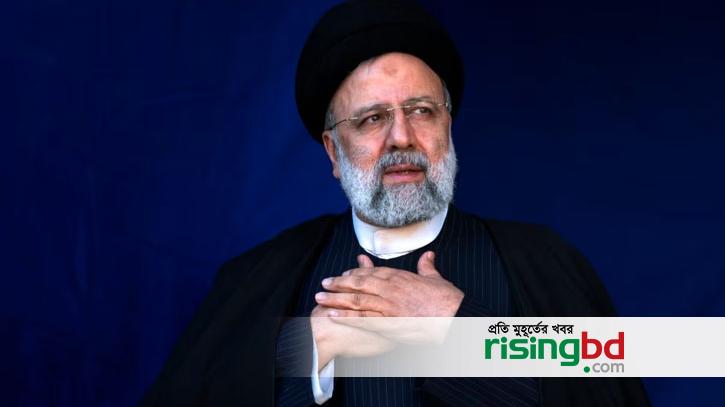Iran's conservative president, Ibrahim Raisi, has long been considered a disciple of the country's supreme leader and one of his potential successors in the Shia monarchy.
Raisi became president at a time when Iran is going through a social crisis and the country's economy is struggling under the pressure of US sanctions over its nuclear program.
The war that broke out in Gaza on October 7 last year has once again raised regional tensions. In April 2024, Iran fired hundreds of missiles and drones directly at Israel after a series of counter-attacks.
In a speech yesterday after inaugurating the dam on May 19, Raisi emphasized Iran's support for the Palestinians. Support for Palestine has been one of the main themes of Iran's foreign policy since the 1979 Islamic Revolution.
“We believe that Palestine is the first issue for the Muslim world,” Raisi said.
Tarun Raisi in the Judiciary
Raisi was born in the holy city of Mashhad in Iran in 1960 and assumed high-level responsibilities at a young age. At the age of 20, he was appointed Prosecutor-General of Karaj near Tehran.
He served as Prosecutor-General of Tehran from 1989 to 1994. Raisi was Deputy Head of the Department of Justice for ten years after 2004, and in 2014 was appointed National Prosecutor-General.
Raisi ran for president against Hassan Rouhani in 2017, but lost the election. Rouhani is relatively a moderate and in 2015, during his presidency, he concluded the Iran nuclear deal with some of the world's most powerful countries.
Raisi ran for re-election in 2021, in which all of his potential opponents were disqualified by Iran's electoral system. 62 percent of the 2.9 crore votes cast went to Raisi. However, the voter turnout in this election was the lowest in the history of the Islamic Republic of Iran. Millions of voters either did not vote or discarded their ballot papers.
Fighting Saddam Hussein
When asked about the 1988 executions at a press conference after the election, he expressed no remorse. After a bloody 10-year war between Iran and Saddam Hussein's Iraq, in 1988 mock trials of political prisoners, militants and others, known as the 'Death Commission', were held.
After Iran's then-supreme leader Ayatollah Ruhollah Khomeini agreed to a UN-brokered ceasefire, the Mujahideen-e-Khalq, an Iranian armed opposition group, attacked Iran from Iraq. They were armed with heavy weapons given to them by Saddam Hussein, but Iran was able to repel them.
At that time the trial process began. The inmates are first asked to identify themselves. Those who identified themselves as 'Mujahideen' were sentenced to death. According to a 1990 report by the human rights group Amnesty, others were asked whether they would be willing to 'work to clear land mines for the army of the Islamic Republic.'
According to international rights groups, around 5,000 people were executed. Rice was 28, and served on commissions.
The US Treasury Department issued a ban on Rice in 2019, citing 1988. The reason for the ban is that Rice has performed administrative duties in the process of executing criminals who were 'minors at the time of the crime.'
Supreme leader Khamenei
The ultimate ruler of Iran is the supreme leader, 85-year-old Ayatollah Ali Khamenei. But as president, Rice supported the country's move to the stage of developing nuclear weapons enriched with uranium. He also disrupted the work of international inspectors as part of a conflict with the Western world.
It re-established diplomatic ties with regional rival Saudi Arabia in March 2023 through an unexpected agreement.
After an Israeli attack on the Iranian embassy compound in the Syrian capital, Damascus, killed several Iranian military generals, Raisi directly supported a retaliatory strike against Israel with nearly 300 missiles and drones. The Israeli assault on Damascus was a significant extension of the year-long 'shadow war'.
Raisi supported security forces' crackdown on dissent, including protests following the 2022 death of Iranian-Kurdish woman Mahsa Amini in police custody. About 500 people were killed and 22,000 arrested in security forces' operations.
Incidentally, the country's state television reported that no sign of life was found in the helicopter carrying Iranian President Ibrahim Raisi. On Monday (May 20), British media BBC and Reuters reported.
Citing an Iranian official, Reuters reported that the helicopter was completely destroyed in the accident.
Source: Voice of America
